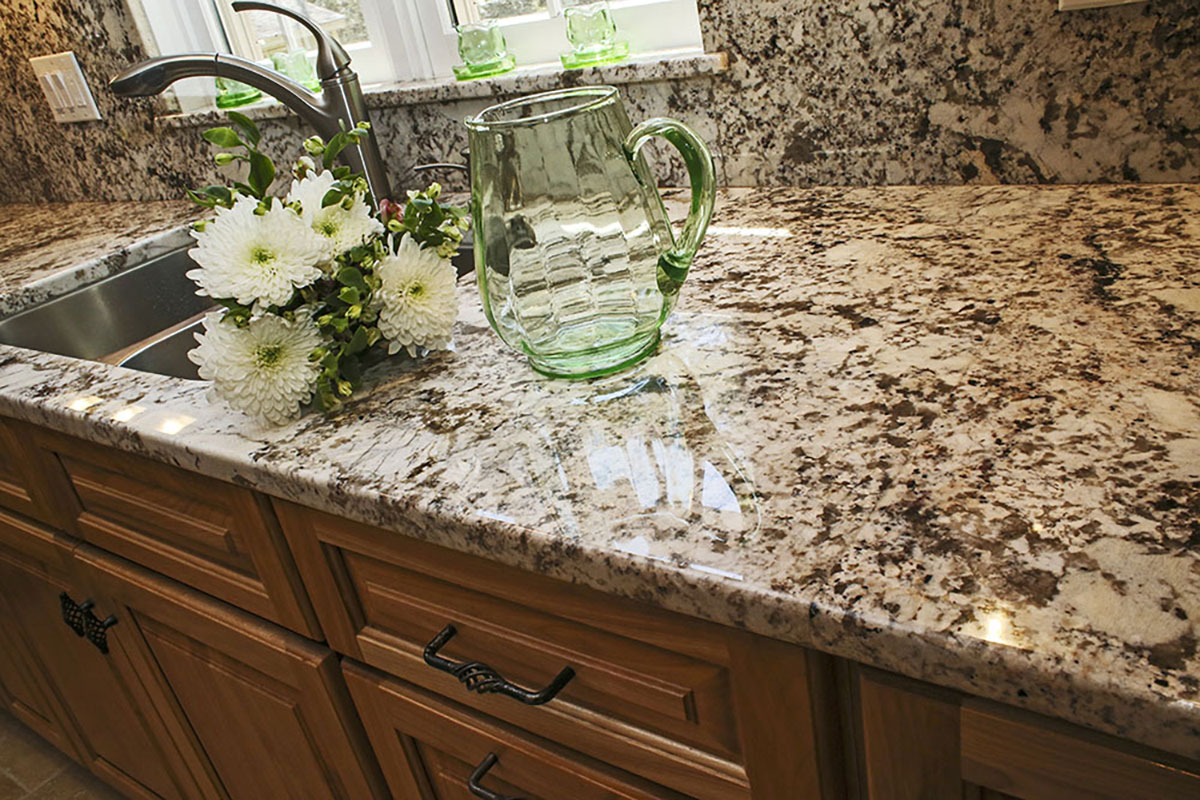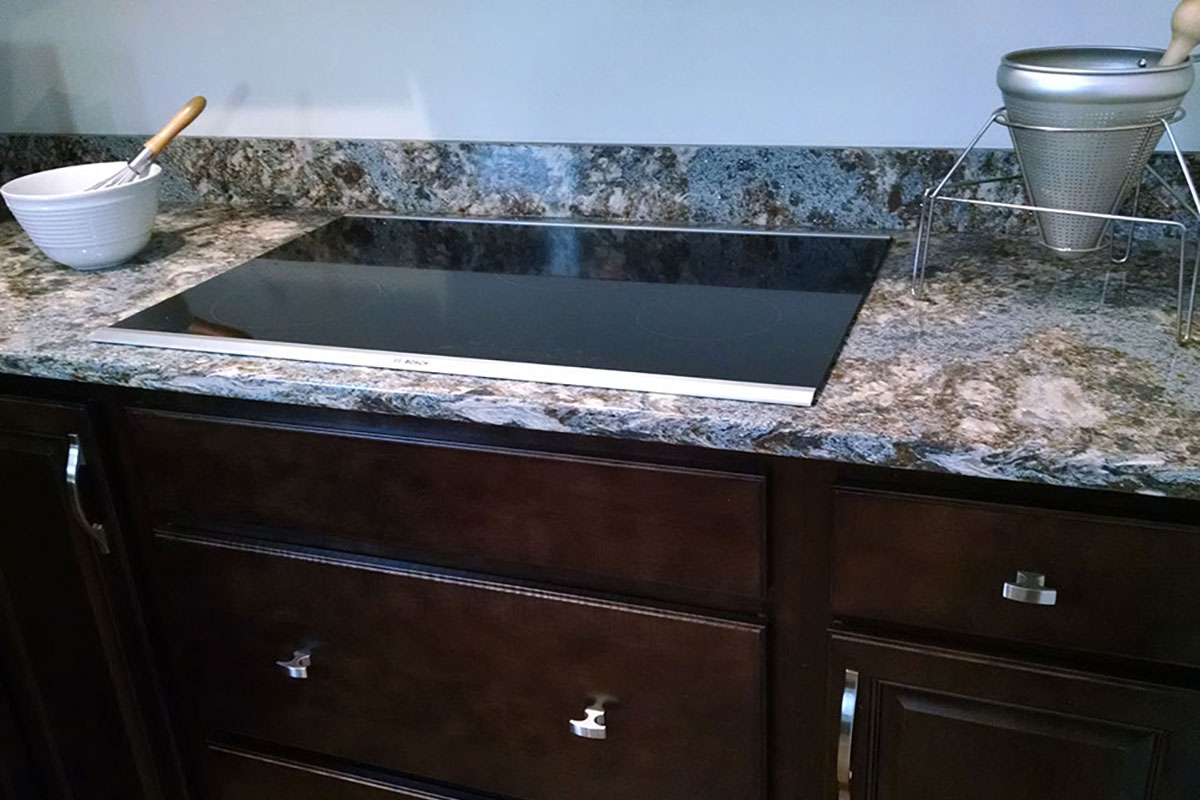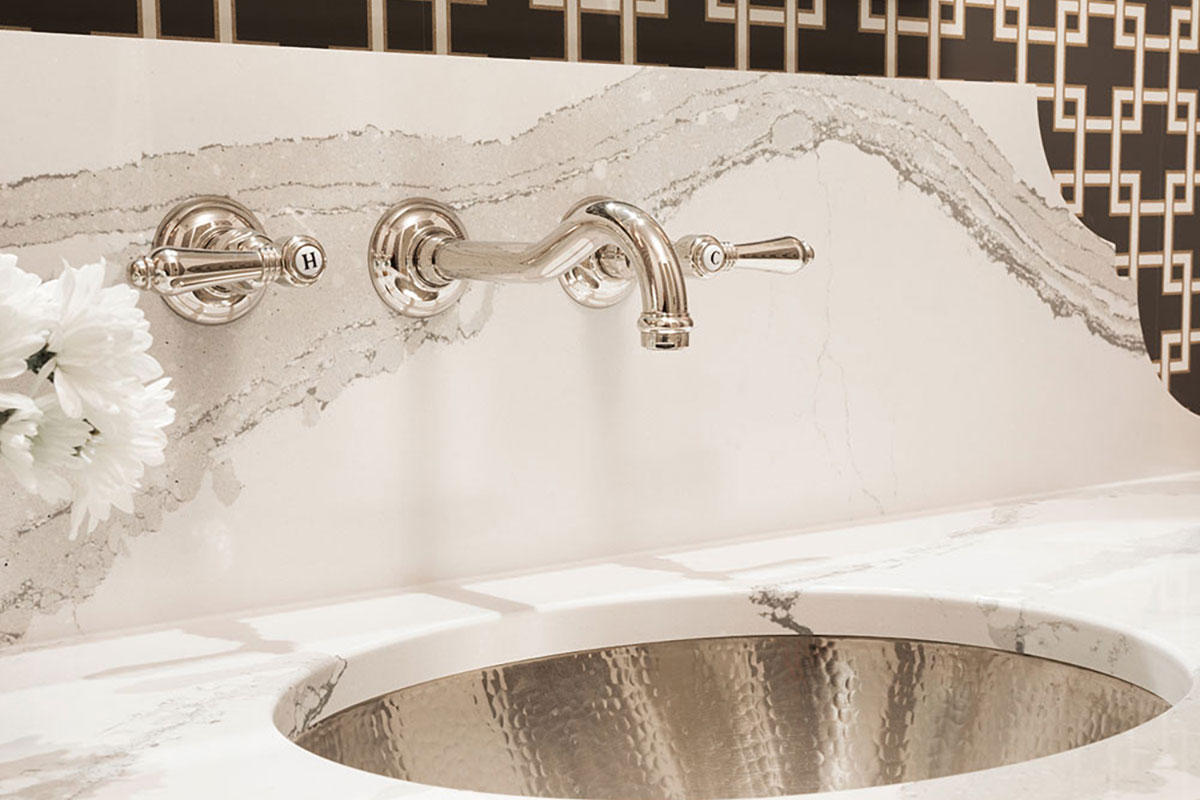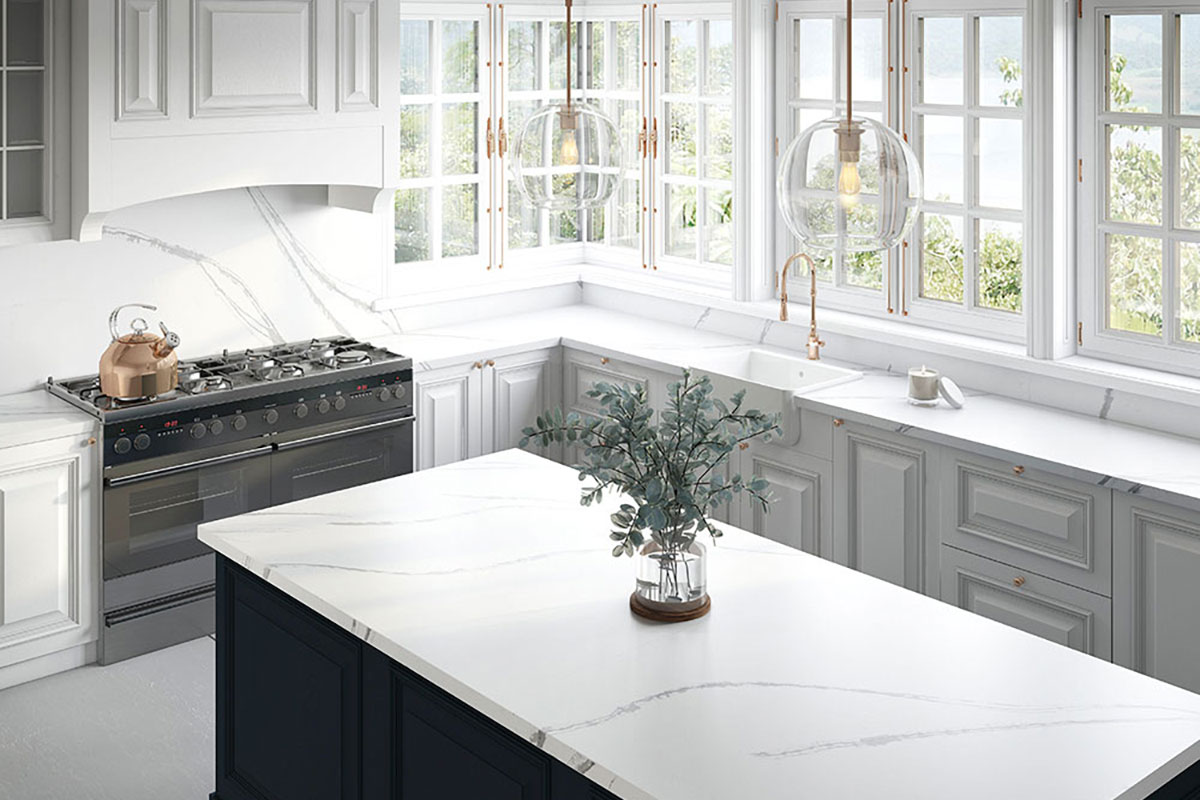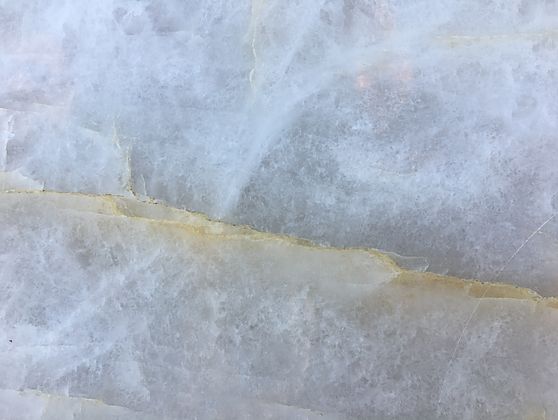
Natural stone countertops are valued for their durability, timeless appearance, and unique character. During the selection process, many homeowners notice faint lines in the surface and wonder if they should be a concern. These lines are called fissures, and they are an inherent characteristic of natural stone. Read on to learn more about fissures in natural stone.
What Are Fissures in Granite, Marble, and Quartzite?
Fissures are thin, hairline openings that form naturally in stone as it develops deep within the earth. They are most common in granite, marble, soapstone and quartzite, though they can appear in other stone types as well. A fissure may look like a narrow, jagged line running across the surface, and it can appear more noticeable under certain lighting or viewing angles. Fissures are frequently present in or beside the naturally occurring veining seen in natural stone.
Fissures are not considered defects and will not affect the long-term performance of your countertop once it is installed.
Cracks Vs. Fissures: The Difference Explained
Homeowners sometimes confuse fissures with cracks, but the two are not the same.
- Fissures: Natural hairline features that occur within the stone, are present in the surface and remain structurally sound.
Examples of fissures:

A fissure that can be found in some natural stone surfaces.

Another example of a naturally occurring fissure.
- Cracks: A complete separation, all the way through the slab; frequently caused by impact or movement stress.
Examples of cracks:

An example of a crack in natural stone

A crack in a countertop or stone surface
Sometimes a fissure becomes a crack during the fabrication and installation process. Most often, this can be remedied by reinforcing the stone and refinishing the surface. This is where the craftsmanship of your fabricator comes into play, whose workmanship will yield a thin-line appearance (fissure) that does not compromise the stone’s integrity or aesthetic. If this result cannot be achieved in a manner that meets our high standards, we will simply start over with new material, at our expense.
How Rumford Stone Reinforces Fissures During Fabrication
Rumford Stone has worked with natural stone for more than 20 years. Each slab is carefully inspected before fabrication begins. If a fissure requires additional support, our team reinforces it with stainless steel or carbon fiber rods and professional-grade stone adhesives to keep the stone stable throughout cutting, polishing, and installation process.
In more than two decades, Rumford Stone has never had a fissure fail after installation. If one ever did, it would be fully covered under our warranty.
Do Fissures Affect Countertop Durability?
Fissures do not reduce the strength or performance of natural stone countertops. Under normal conditions, they are stable features that do not spread, grow, or weaken the slab.
Why Fissures Add Character to Natural Stone
Every slab of granite, marble, or quartzite is formed over millions of years, and fissures are part of that history. Far from being a flaw, they highlight the natural origins of the material as evidenced by its unique vein patterns and contribute to the one-of-a-kind look that sets natural stone apart from man-made surfaces.
Trust Rumford Stone for Expert Fabrication and Installation
Rumford Stone combines decades of experience with the latest fabrication technology to deliver countertops that are both beautiful and reliable. Fissures are a natural part of stone, and with our expertise, they are never a cause for concern.
If you would like to learn more about natural stone or view available slabs, our team is ready to guide you through the process.





